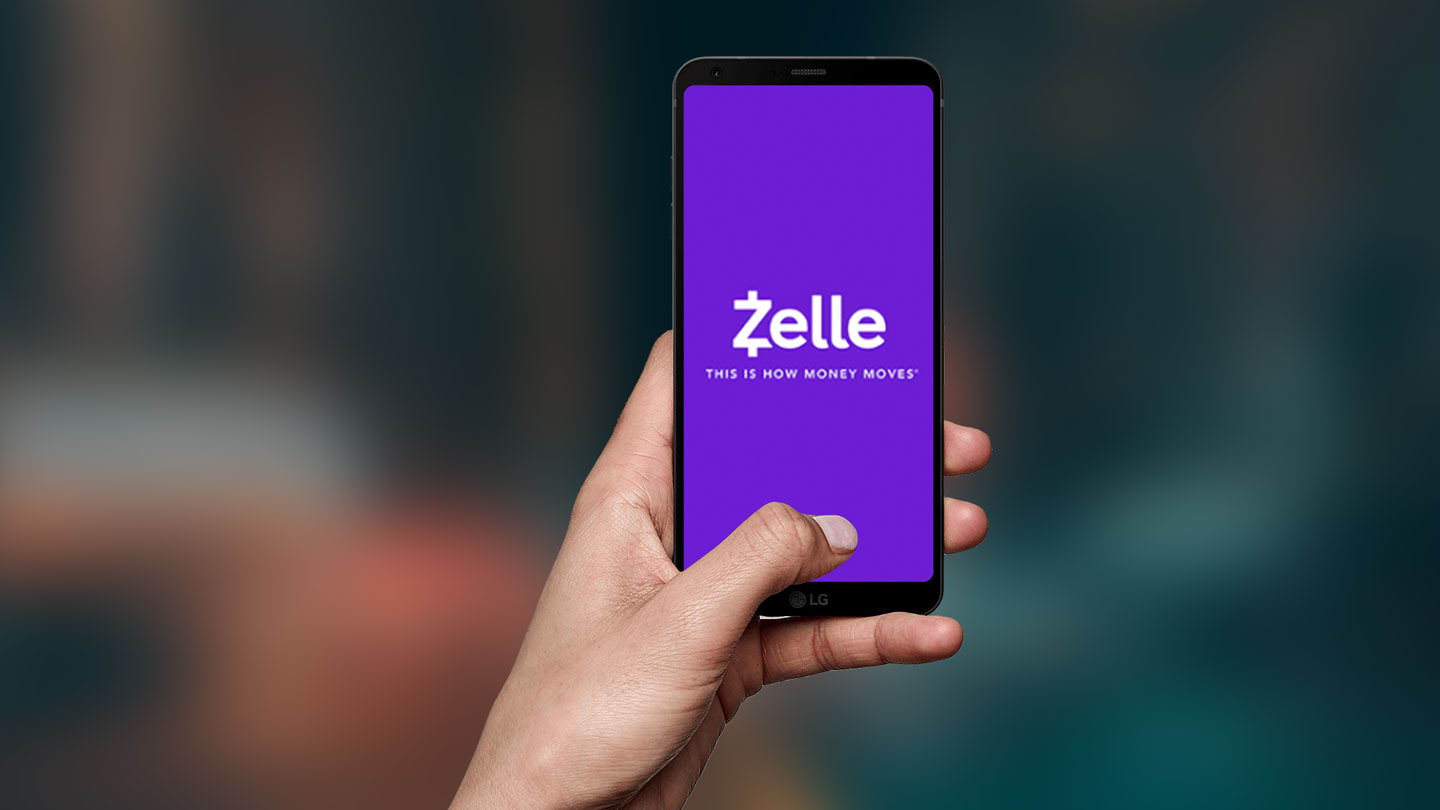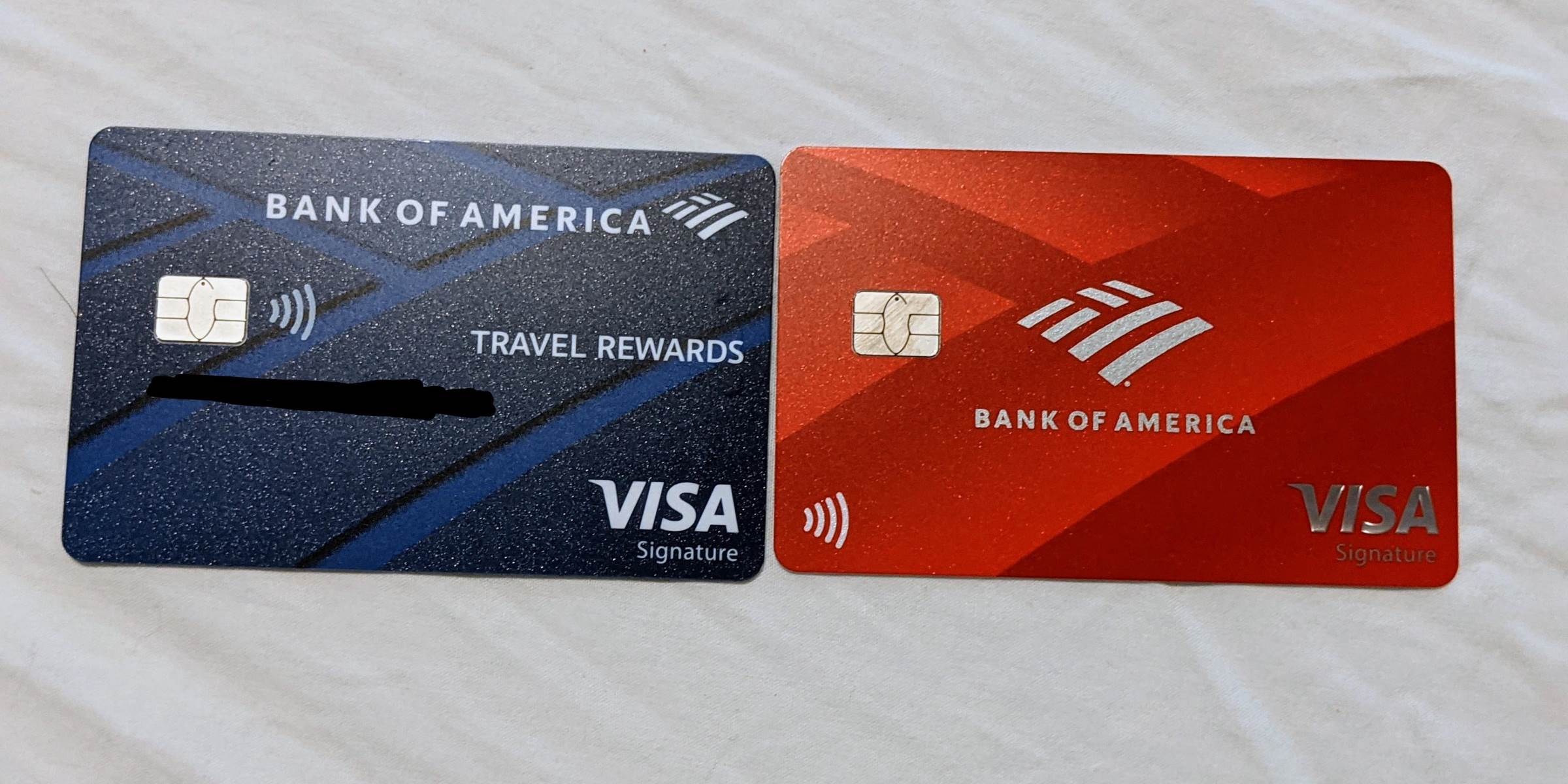

Finance
How To Learn Accounting Without College
Published: October 6, 2023
Learn finance and accounting skills without the need for a college degree. Discover effective methods and resources to become proficient in finance on your own.
(Many of the links in this article redirect to a specific reviewed product. Your purchase of these products through affiliate links helps to generate commission for LiveWell, at no extra cost. Learn more)
Table of Contents
- Introduction
- Benefits of Learning Accounting Without College
- Self-Study Resources for Learning Accounting
- Online Courses for Learning Accounting
- Books for Learning Accounting
- Accounting Software and Tools for Self-Study
- Joining Accounting Groups and Communities
- Practical Tips for Learning Accounting Without College
- Conclusion
Introduction
Accounting is an essential skill for both personal financial management and professional success. While many individuals believe that obtaining a college degree is the only path to learning accounting, that is simply not the case. In fact, there are numerous resources available for learning accounting without going to college.
Whether you are looking to start a career in finance, manage your own business finances, or simply gain a better understanding of how money works, learning accounting can open up a world of opportunities. The good news is that you don’t need to enroll in a college program to acquire this knowledge. With the right resources and a commitment to self-study, you can become proficient in accounting and gain valuable skills on your own terms.
Learning accounting without college has several benefits. Firstly, it offers flexibility in terms of time and location. You can study at your own pace and fit your learning around your existing commitments. Secondly, it allows for cost savings. College tuition fees can be significant, but with self-study resources, online courses, and books, you can acquire the same knowledge at a fraction of the cost. Lastly, learning accounting independently showcases self-motivation and initiative to potential employers, demonstrating your dedication and ability to learn on your own.
In this article, we will explore the various resources available for learning accounting without college. From self-study materials to online courses and accounting software, we will provide you with a comprehensive guide to kickstart your accounting journey. So, let’s dive in and discover the exciting world of accounting!
Benefits of Learning Accounting Without College
Learning accounting without college offers numerous benefits that can have a significant impact on your personal and professional life. Here are some of the key advantages:
- Flexibility: When learning accounting without college, you have the freedom to study at your own pace and on your own schedule. Whether you have a full-time job, family commitments, or other responsibilities, you can fit your learning around your life. This flexibility allows you to take control of your learning journey and tailor it to your specific needs.
- Cost Savings: Pursuing a college degree in accounting can be expensive, with tuition fees, textbooks, and other associated costs. By choosing to learn accounting without college, you can significantly reduce your expenses. There are many affordable or even free resources available, such as online courses and self-study materials. This makes learning accounting accessible to individuals from all economic backgrounds.
- Self-Motivation and Initiative: Learning accounting independently showcases your self-motivation and initiative to potential employers. It demonstrates that you are proactive, dedicated, and capable of acquiring knowledge on your own. These qualities are highly sought-after in the business world, and they can set you apart from other candidates when pursuing job opportunities in finance or accounting.
- Customizable Learning Experience: With self-study resources, you have the freedom to customize your learning experience. You can focus on the topics that interest you the most, skip over concepts you may already be familiar with, and revisit challenging subjects as needed. This personalized approach allows you to maximize your learning potential and acquire a deep understanding of accounting principles.
- Practical Application: Learning accounting without college often provides more opportunities for hands-on practical application. Many online courses and self-study resources offer interactive exercises, simulations, and real-world examples to reinforce your learning. Applying accounting concepts to real-life scenarios helps solidify your understanding and prepares you to apply your skills in actual accounting situations.
By learning accounting without college, you gain the flexibility to study on your own terms, save money on tuition fees, demonstrate your self-motivation, customize your learning experience, and apply accounting principles in practical ways. These benefits make self-study an appealing option for individuals seeking to acquire accounting knowledge and skills without pursuing a traditional college degree.
Self-Study Resources for Learning Accounting
If you’re interested in learning accounting without college, there are a variety of self-study resources available that can help you acquire the necessary knowledge and skills. Here are some of the most effective resources to consider:
- Online Tutorials and Guides: Many websites offer free or low-cost online tutorials and guides that cover the fundamentals of accounting. These resources provide step-by-step instructions and explanations of various accounting concepts and principles. Some popular online platforms for accounting tutorials include Khan Academy, Investopedia, and Accounting Coach.
- Open Courseware: Universities and educational institutions often provide open courseware, which includes lecture materials, assignments, and sometimes even video recordings of actual accounting courses. Websites like MIT OpenCourseWare and Open Yale Courses offer free access to accounting courses taught by experienced professors. This can be a great way to gain a structured learning experience without the cost of tuition.
- Online Forums and Discussion Boards: Engaging with online forums and discussion boards dedicated to accounting can provide valuable insights and allow you to interact with other learners and professionals in the field. Platforms such as Reddit, Quora, and LinkedIn groups offer spaces where you can ask questions, share experiences, and learn from others’ perspectives. This can enhance your understanding of complex accounting topics and provide practical tips and advice.
- Accounting Blogs and Podcasts: Following accounting blogs and listening to accounting podcasts can be an excellent way to stay up-to-date with industry trends, gain insights from professionals, and expand your knowledge. There are numerous blogs and podcasts available that cover a wide range of accounting topics, such as The Accounting Coach Blog, AccountingWeb, and The Bean Counter Podcast.
- Practice Exercises and Problem Sets: To reinforce your understanding of accounting concepts, it’s essential to practice solving accounting problems. Many textbooks, online platforms, and educational websites provide practice exercises and problem sets that allow you to apply your knowledge and sharpen your skills. Additionally, some resources offer solutions or explanations to help you review and learn from your mistakes.
These self-study resources can help you build a solid foundation in accounting. Combine these resources with a consistent study schedule, active participation in online communities, and a willingness to practice and apply what you learn. By taking advantage of these resources, you can gain a comprehensive understanding of accounting principles and develop the skills necessary for success in the field.
Online Courses for Learning Accounting
Online courses offer a structured and comprehensive way to learn accounting without college. These courses are designed by experienced instructors and provide in-depth lessons, practical exercises, and assessments to gauge your understanding. Here are some reputable online platforms that offer accounting courses:
- Coursera: Coursera offers a wide range of accounting courses from top universities and institutions worldwide. You can choose from introductory courses covering basic accounting principles to more advanced courses that delve into financial statement analysis, managerial accounting, and taxation.
- edX: With edX, you can access accounting courses from prestigious universities such as Harvard, Stanford, and MIT. These courses cover various accounting topics, including financial accounting, auditing, and forensic accounting. You can enroll in self-paced courses or join a structured program to earn a certificate upon completion.
- Udemy: Udemy offers a diverse selection of accounting courses taught by industry professionals. From beginner-friendly courses on bookkeeping and financial statements to specialized courses on budgeting, cost management, and Excel for accounting, Udemy provides a range of options for learners of all levels.
- LinkedIn Learning: LinkedIn Learning provides a library of accounting courses that cover a broad spectrum of topics. These courses are taught by experts in the field and offer a combination of instructional videos, quizzes, and exercises. LinkedIn Learning also allows you to showcase your completed courses on your LinkedIn profile, demonstrating your commitment to continuous learning.
- Accounting Coach PRO: Accounting Coach PRO offers a comprehensive online course designed for individuals who want an intensive and guided learning experience. The course covers all essential accounting topics, including journal entries, financial statements, and analyzing transactions. It includes quizzes, exams, and a certificate upon completion.
When choosing an online course, consider factors such as the course duration, instructor qualifications, user reviews, and the inclusion of practical exercises. Additionally, some courses offer a free preview or trial period, allowing you to assess the course’s quality and teaching style before committing.
Online courses provide the benefits of structured learning and access to expert knowledge. However, it is essential to stay motivated and disciplined throughout the course. Create a study schedule, set goals, and actively engage with the course material. Take advantage of discussion forums or community platforms to connect with fellow learners and seek clarification on challenging concepts.
By enrolling in online accounting courses, you can gain a comprehensive understanding of accounting principles, become familiar with industry-standard practices, and earn a valuable certificate to enhance your professional profile.
Books for Learning Accounting
Books are a valuable resource for learning accounting without college. They provide in-depth explanations, practical examples, and comprehensive coverage of accounting principles. Here are some highly recommended books for learning accounting:
- “Accounting Made Simple: Accounting Explained in 100 Pages or Less” by Mike Piper: This book is an excellent starting point for beginners as it simplifies complex accounting concepts and terminology. It covers essential topics such as financial statements, debits and credits, and the accounting equation in a concise and easy-to-understand manner.
- “Financial Accounting: Tools for Business Decision-Making” by Paul D. Kimmel, Jerry J. Weygandt, and Donald E. Kieso: This comprehensive textbook provides a thorough understanding of financial accounting principles. It covers financial statements, income measurement, inventory valuation, and other essential topics. It includes real-world examples and practice problems to reinforce understanding.
- “Managerial Accounting: Tools for Business Decision-Making” by Jerry J. Weygandt, Paul D. Kimmel, and Donald E. Kieso: This book focuses on managerial accounting and explores how accounting information is used for internal decision-making. It covers cost behavior, budgeting, performance analysis, and other managerial accounting techniques.
- “Accounting All-in-One For Dummies” by Kenneth W. Boyd: This comprehensive guide covers a wide range of accounting topics, making it suitable for beginners and intermediate learners. It provides an overview of financial accounting, managerial accounting, bookkeeping, and taxation. It also includes practical tips, real-world examples, and practice questions.
- “Intermediate Accounting” by Donald E. Kieso, Jerry J. Weygandt, and Terry D. Warfield: This textbook is geared towards individuals who want to delve deeper into the complexities of intermediate accounting. It covers topics such as revenue recognition, long-term assets, pensions, and leases. It provides a rigorous understanding of accounting principles and prepares readers for more advanced concepts.
When selecting accounting books, consider your level of expertise and the specific topics you want to focus on. Look for books that are recommended by professionals in the field, have positive reviews, and are updated to reflect current accounting practices and regulations.
While reading accounting books, it’s important to take notes, create summaries of key concepts, and work through practice problems or exercises provided. This active engagement will help reinforce your understanding and ensure practical application of the knowledge gained.
Remember that books should be used in combination with other resources, such as online tutorials or courses, to enhance your learning journey. By utilizing well-regarded accounting books, you can develop a strong foundation in accounting principles and gain the knowledge needed to succeed in the field.
Accounting Software and Tools for Self-Study
When learning accounting without college, utilizing accounting software and tools can greatly enhance your understanding and practical skills. These software applications and tools can assist you in applying accounting concepts and managing financial data effectively. Here are some popular accounting software and tools worth considering:
- QuickBooks: QuickBooks is a widely-used accounting software designed for small businesses and individuals. It allows users to track income and expenses, create invoices, manage inventory, and generate financial reports. QuickBooks offers various versions and features, making it suitable for both beginners and more advanced users.
- Xero: Xero is another popular cloud-based accounting software that enables users to handle invoicing, bank reconciliations, expense tracking, and more. It also integrates with other business applications, providing a seamless experience for managing finances. Xero is known for its user-friendly interface and comprehensive reporting capabilities.
- Wave: Wave is a free accounting software that offers a range of features suitable for small businesses and freelancers. It includes invoicing, expense tracking, receipt scanning, and financial reporting. Wave also provides integrated payment processing options, making it convenient for accepting online payments.
- Excel: While not dedicated accounting software, Microsoft Excel is a powerful tool for organizing financial data, preparing budgets, and performing calculations. It can be used to create spreadsheets for recording transactions, creating financial statements, and conducting data analysis. Excel offers a wide range of functions and formulas that can automate accounting processes and streamline calculations.
- Google Sheets: Similar to Excel, Google Sheets is a web-based spreadsheet tool that allows users to collaborate in real-time and access their data from anywhere. It offers many of the same features as Excel and can be used for budgeting, financial analysis, and record-keeping.
By using accounting software and tools, you can gain hands-on experience and apply accounting principles in a real-world context. These tools often provide user-friendly interfaces, automated processes, and robust reporting functionalities, saving you time and effort in managing financial data.
When using accounting software, it’s essential to familiarize yourself with the features and functionalities through tutorials or online guides provided by the software developers. Practice entering transactions, reconciling accounts, and generating financial reports to reinforce your understanding of accounting processes.
Remember that while accounting software can streamline financial management, it’s still crucial to understand the underlying accounting principles. Using these tools in conjunction with other resources, such as textbooks or online courses, will ensure a well-rounded and comprehensive learning experience.
Joining Accounting Groups and Communities
One of the most valuable aspects of learning accounting without college is the opportunity to connect with like-minded individuals and professionals in the field. Joining accounting groups and communities fosters collaboration, knowledge-sharing, and networking. Here are some ways to engage with these communities:
- Online Forums: There are numerous online forums dedicated to accounting where you can ask questions, seek advice, and participate in discussions. Platforms like Reddit’s r/Accounting and AccountingWEB’s forums allow you to connect with other learners and professionals, share experiences, and gain insights from different perspectives.
- LinkedIn Groups: LinkedIn offers a variety of accounting-related groups where individuals can connect with professionals in the industry. Joining these groups allows you to participate in discussions, network with professionals, and gain valuable insights into the latest trends and practices in accounting.
- Local Meetups and Networking Events: Check for local accounting-related meetups, seminars, or networking events in your area. These events provide an opportunity to connect with fellow learners, industry experts, and potential mentors. It’s a great way to expand your professional network and gain insights into the accounting community in your region.
- Professional Associations: Consider joining professional accounting associations such as the American Institute of Certified Public Accountants (AICPA) or the Association of Chartered Certified Accountants (ACCA). These associations often offer membership benefits that include access to exclusive resources, networking opportunities, and continuing education programs.
- Social Media Groups: Platforms like Facebook and Twitter host accounting-related groups and communities where you can engage with fellow learners, ask questions, and share knowledge. Look for groups with active discussions and a supportive community atmosphere.
Engaging with accounting groups and communities allows you to learn from the experiences and expertise of others. It provides an avenue for discussing challenging topics, seeking clarification on concepts, and staying updated with industry trends. Additionally, you may find mentors or industry professionals who can offer guidance and support throughout your accounting journey.
When participating in these communities, be respectful, contribute meaningfully to discussions, and be open to learning from others. Actively engage by asking questions, sharing insights, and offering help where you can. Networking and building relationships with professionals in these communities can lead to valuable career opportunities and collaborations in the future.
By joining accounting groups and communities, you can be part of a supportive and knowledgeable network that will aid in your learning, provide valuable insights, and contribute to your professional growth in the field of accounting.
Practical Tips for Learning Accounting Without College
Learning accounting without college requires self-discipline, motivation, and effective study strategies. Here are some practical tips to help you maximize your learning experience:
- Create a Study Plan: Develop a study plan or schedule that fits your lifestyle and commitments. Allocate dedicated time for studying accounting concepts, practicing exercises, and reviewing material regularly. Consistency is key to retaining and applying accounting knowledge effectively.
- Break Down Complex Concepts: Accounting can involve complex terminology and concepts. When encountering challenging topics, break them down into smaller, more manageable parts. Focus on understanding each component before moving on to more advanced concepts. Use resources like online tutorials, video lectures, and practice problems to reinforce your understanding.
- Apply Accounting Principles: Look for opportunities to apply accounting principles in real-life scenarios. Take on small bookkeeping tasks for friends or family members, volunteer to help with financial management for a non-profit organization, or consider working part-time or interning in an accounting-related role. Practical application will solidify your understanding of accounting concepts.
- Seek Feedback and Clarification: Don’t hesitate to seek feedback and clarification when you come across challenging topics. Engage with online forums, communities, or find a study partner who can review your work and provide insights. Asking questions and getting clarification will help you grasp the finer points of accounting principles and ensure accuracy in your learning process.
- Utilize Real-world Examples: Relate accounting concepts to real-world examples to enhance your understanding. Look for case studies, news articles, or business scenarios where accounting principles are applied. Understanding how accounting concepts are used in practical situations will strengthen your comprehension and enable you to connect theory to real-life scenarios.
- Stay Updated with Industry Trends: Follow accounting industry news and stay current with changes in regulations and practices. Subscribe to reputable accounting publications, follow accounting blogs, and join professional accounting associations to stay informed about developments in the field. This will demonstrate your commitment to ongoing learning and keep you ahead of industry trends.
- Practice Time Management: Learning accounting without college requires effective time management. Break your study sessions into manageable chunks and set deadlines for completing specific tasks or topics. Avoid procrastination and maintain a sense of discipline and focus during your designated study time. This will promote efficiency and help you achieve your learning goals.
- Review and Reinforce: Regularly review and reinforce previously learned accounting concepts. Accounting is cumulative, and regularly revisiting past topics will help with retention and ensure a strong foundation. Incorporate periodic review sessions into your study plan to refresh your knowledge and identify areas that may require additional practice.
Remember that everyone learns at their own pace, so be patient and give yourself time to grasp complex accounting principles. Celebrate your progress along the way and maintain a positive attitude towards continuous learning and improvement.
By following these practical tips, you can optimize your learning experience and develop a strong foundation in accounting without the formal structure of a college program.
Conclusion
Learning accounting without college is an achievable and rewarding endeavor. With the abundance of self-study resources, online courses, books, accounting software, and communities available, anyone can gain a strong foundation in accounting principles and practices. By following practical tips and staying committed to your learning journey, you can develop valuable accounting skills that can propel your personal and professional growth.
One of the significant benefits of learning accounting without college is the flexibility it offers. You have the freedom to study at your own pace, customize your learning experience, and fit it into your existing schedule. This flexibility empowers you to take control of your learning and pursue accounting knowledge on your own terms.
Engaging with accounting groups and communities allows you to connect with other learners, industry professionals, and potential mentors. By actively participating in discussions, asking questions, and sharing insights, you can expand your network, gain valuable insights, and navigate the intricacies of the accounting field.
Remember that learning accounting is an ongoing process. Stay updated with industry trends, continually seek opportunities to apply your knowledge in real-world scenarios, and maintain a curious and open mindset towards learning. By doing so, you will not only develop a deep understanding of accounting principles but also demonstrate your commitment to professional development.
In conclusion, learning accounting without college is an accessible path to gaining valuable skills and knowledge. With dedication, discipline, and the utilization of available resources, you can embark on a successful accounting journey, whether you’re looking to manage your personal finances, start a career in finance, or enhance your business acumen. So, take the plunge and explore the fascinating world of accounting on your own terms!














